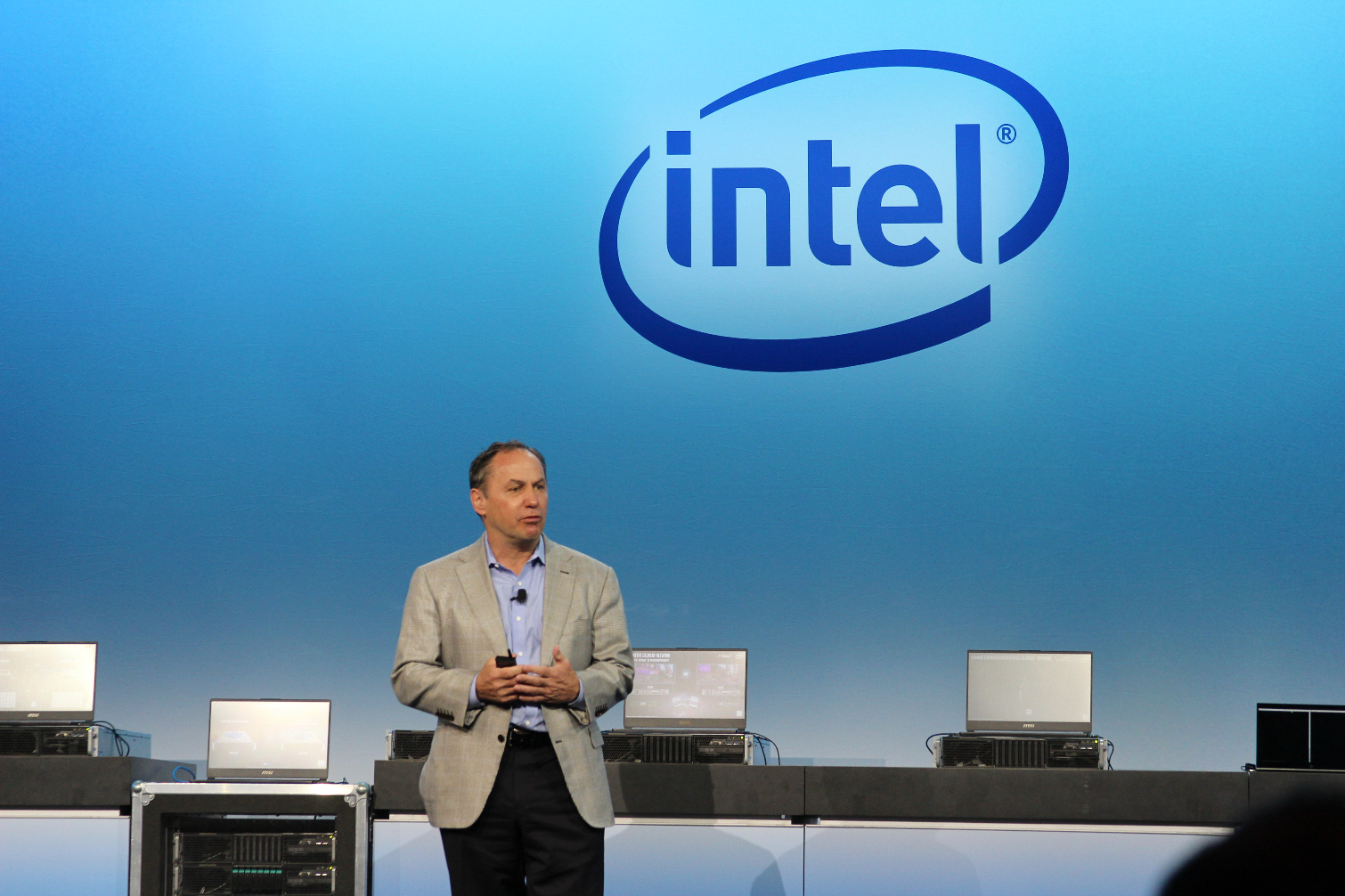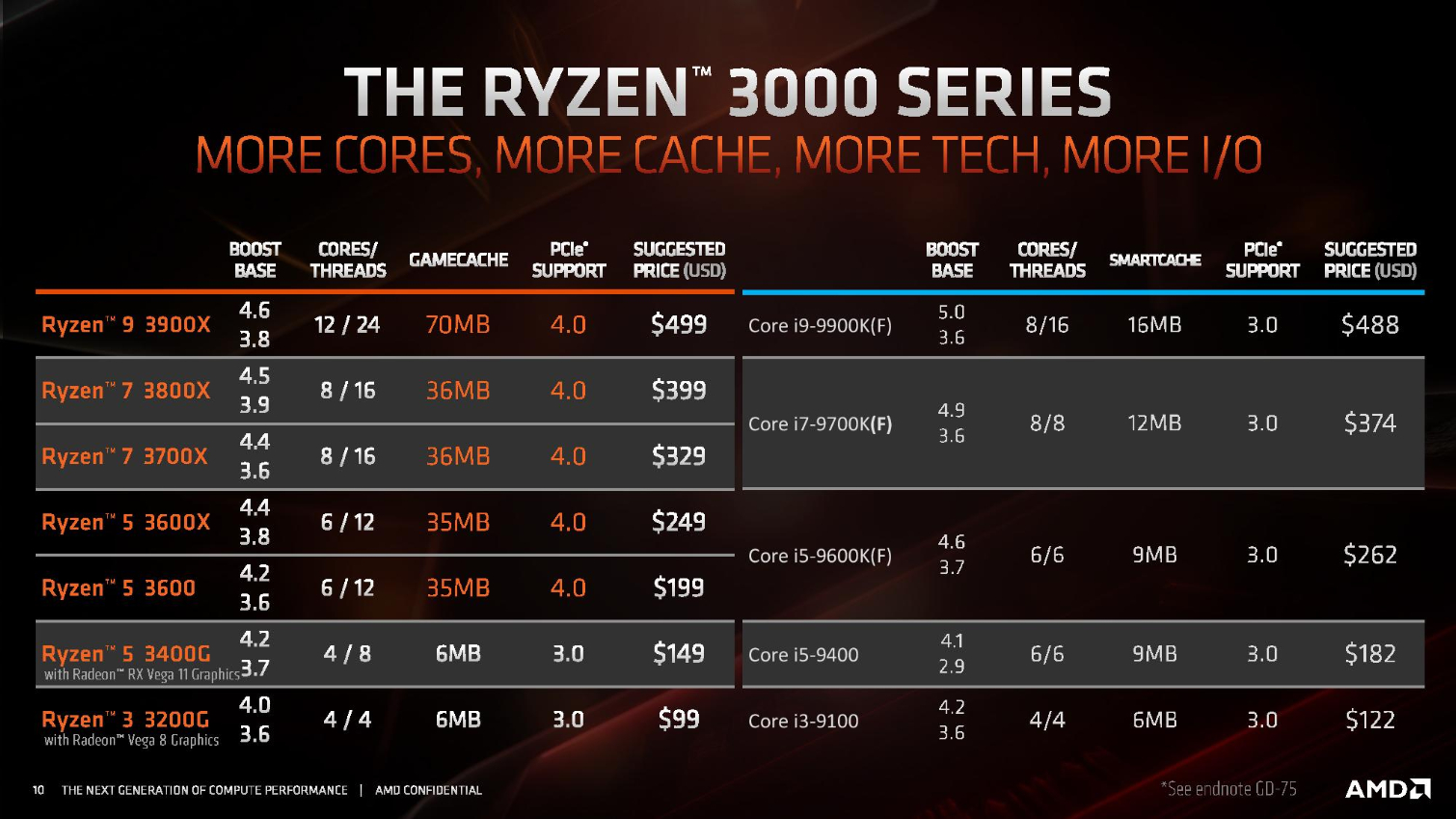DigiTimes: Intel to Slash Desktop Processor Pricing up to 15 Percent as Ryzen 3000 Nears
DigiTimes reported today, citing sources at motherboard makers, that Intel plans to cut the pricing of its eighth- and ninth-gen processors by 10-15% and has already notified its partners of the change. If true, that could mean that pricing for some Intel processors could drop anywhere from $25 to a whopping $75 for pricier SKUs.
The revelation seems quite fantastical, and while there are signals that Intel is ramping up for a more competitive environment as AMD launches its 7nm Ryzen 3000 series processors and EPYC Rome processors, there's also the possibility the report is inaccurate or overstated. We also aren't sure if these purported price drops will filter down to retail sales, or if they are targeted at OEMs. Those companies always pay lower pricing than retail, so the impact of the potential price cut may not be as pronounced for the final products.
Historically, Intel has been known to charge premium pricing for its chips, which generally offer faster performance than competing parts, and a quick glance at Intel's pricing guides indicates that Intel has not lowered pricing for a single part, bar none, as it has grappled with the resurgent AMD's Ryzen lineup. Instead, Intel has released new product generations that come to market at lower price points.
AMD says its Ryzen 3000 series chips will be competitively priced, provide performance parity in the all-important gaming segment, and generally offer more performance for the dollar in threaded applications, like productivity software. It's a tough sell for Intel to continue to charge a premium against chips that are nearly equivalent in some tasks, better in others, have lower power consumption, and come with a new PCIe 4.0 interface while Intel remains on PCIe 3.0. Regardless of the actual performance gains we'll see from the faster PCIe interface, new technology is always a big selling point.
All this means Intel will have to become more competitive in at least some fashion, but, unfortunately, this time around it doesn't have a new line of desktop chips arriving in the near term that it can slash pricing on, meaning that it might have to change its typical response to grapple with AMD's new 7nm chips.
There are other signs that Intel is bracing for a price war. The company announced during its recent Investor Day that it was lowering its gross margin predictions below its historical goals of +60%, citing increased "competitive pressure" and the costs associated with its ramp of the 10nm and 7nm processes. The company also slashed its revenue guidance for 2019 by $2.5 billion, for which it was punished by downgrades from several analyst firms.
The company also predicted that its bread-and-butter PC business would remain flat or experience a slightly downward trend, which doesn't entirely explain such drastic alterations to its financial predictions.
Get Tom's Hardware's best news and in-depth reviews, straight to your inbox.
During the meeting, Intel CFO George Davis noted there was some pressure on Intel's ASP (average selling price) for its chips, saying, "Competition certainly also impacts your ability to drive ASPs where you would like them to be, that's certainly part of it as well."
When asked if Intel's lowered margin guidance was a sign that it planned to respond to AMD's roadmap with more aggressive pricing, Intel CEO Bob Swan replied that "we clearly view a more competitive environment, so, all else equal, our ability to capture value for the incremental performance, all else equal, will be more challenging." Swan also chalked the reduced gross margins up to "...a more competitive environment, transition from 14nm to 10nm, and accelerating the pace to get to 7nm."
These signs could point to Intel gearing up for a price war, but that doesn't mean it is a certainty. Given Intel's history, it would be shocking if it reduced pricing on its existing parts, but the launch of the Ryzen 3000 chips also marks the first time in AMD's history that it has a process lead over Intel, and AMD's Zen 2-fueled chips are narrowing the node, frequency, and IPC gap with Intel's competing products.
That means this unprecedented event may require an unprecedented response.

Paul Alcorn is the Editor-in-Chief for Tom's Hardware US. He also writes news and reviews on CPUs, storage, and enterprise hardware.
-
InvalidError First mainstream Intel price drop in 12+ years. Wish the cuts were larger than merely resetting the last five or so years of upwards price point creep.Reply -
AllanGH Intel could drop their pricing by 45% and still make bank.... :rolleyes:Reply
Intel's attitude is very similar to that of Xerox, during the 70's and 80's. -
BulkZerker Reply
They "did" with the announcement of "Super" edition cards.Jake Hall said:When's Nvidia gonna do that?...
I'll give Intel another run when they start boxing coolers in with their chips that will allow boost clocking for more than a few short moments. -
joeblowsmynose ReplyInvalidError said:First mainstream Intel price drop in 12+ years. Wish the cuts were larger than merely resetting the last five or so years of upwards price point creep.
Well, while they haven't "cut" or "reduced" prices on any SKU, AMD has forced their pricing down a bit on new introduced skus. 6900k is still selling for $900 - $1000 on Amazon (who the hell is buying these?) And the 9900k is half the price and a better performer.
But ... way too late Intel. Way too late ... your arrogance is hurting your sales. -
joeblowsmynose Reply
... That sounded like sarcasm! ;)BulkZerker said:They "did" with the announcement of "Super" edition cards.
... -
TEAMSWITCHER 15%? That all? That's nothing.... If anything AMD has priced the 3700X and 3800X too high. In you are an enthusiast you already have an 8-core part. The 12-core part isn't even the flagship part. That will launch this fall as the 16-core 3950X. I can easily wait until the fall, for Z570 motherboards to get updated and stable BIOS' ... and ... it's summer time!!! I have better things to do than sit at a computer.Reply -
jimmysmitty ReplyThese signs could point to Intel gearing up for a price war, but that doesn't mean it is a certainty. Given Intel's history, it would be shocking if it reduced pricing on its existing parts
It wouldn't be shocking. When Intel launched Core 2 Quad the Q6600 came out at $530 but was not long before it dropped to $300 or less. And AMD didn't really have proper competition with that generation either, Phenom didn't exactly knock it out of the park.
Having proper competition is what it takes to have a real price war. If Zen 2 does well enough Intel could price cut quite a bit to stay competitive. -
mdd1963 someone wrote that AMD was 'narrowing the IPC gap'...?Reply
Based on what I've seen so far (Cinebench, Geekbench, CPU-Z single core, etc) it's still an IPC gap...; only now the 'IPC gap' roles are reversed, and are in AMD's favor by 5-8% or so..
We'll all know the specifics in 17-18 days or so....

